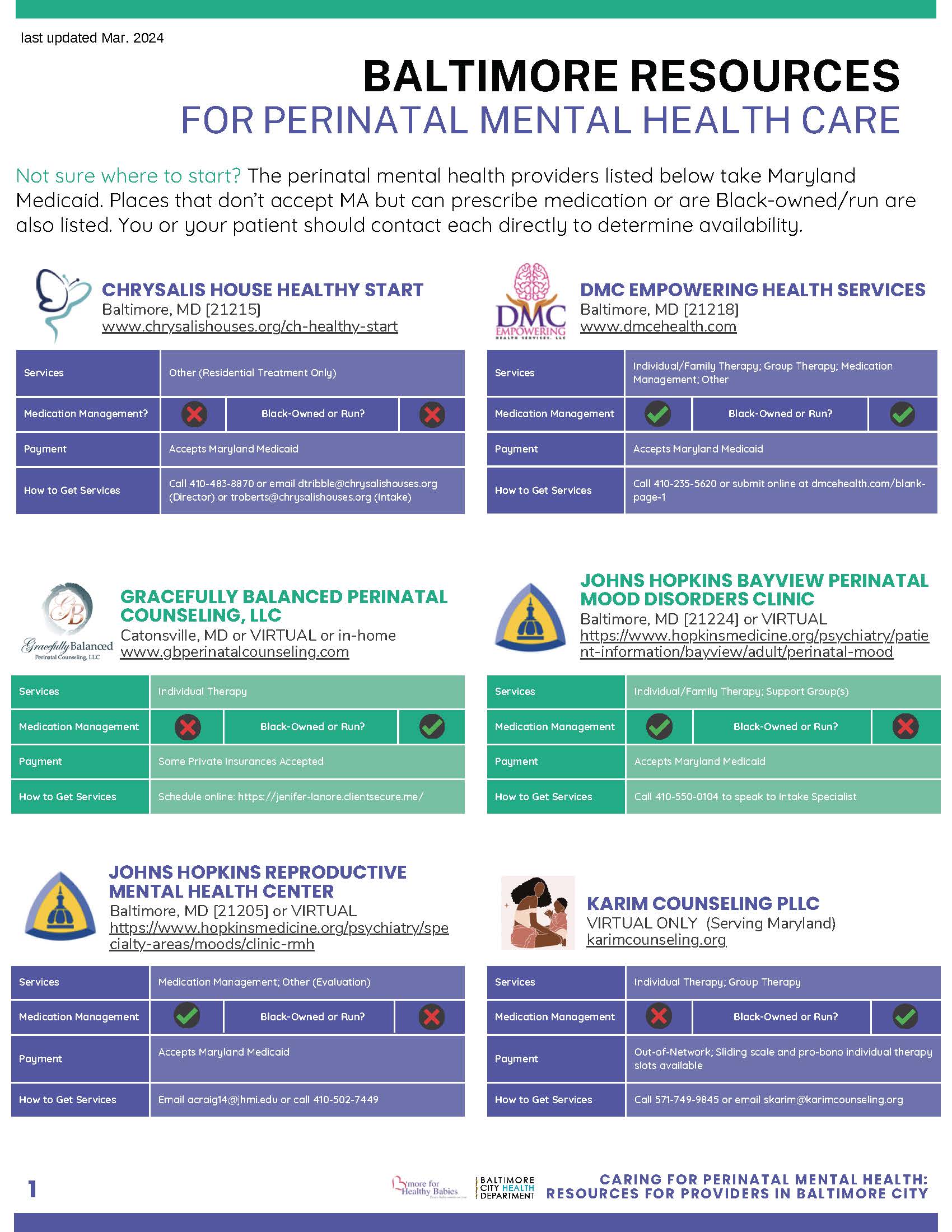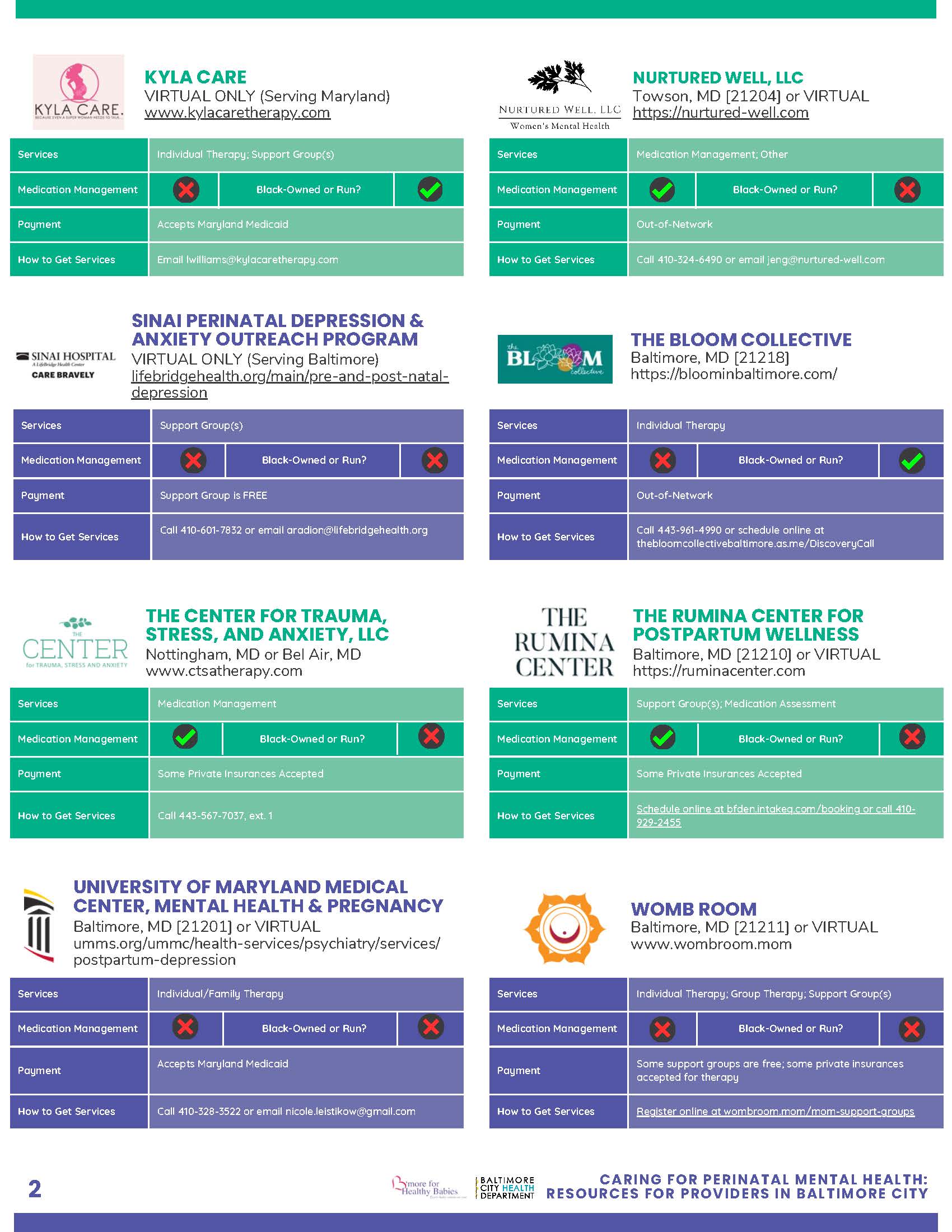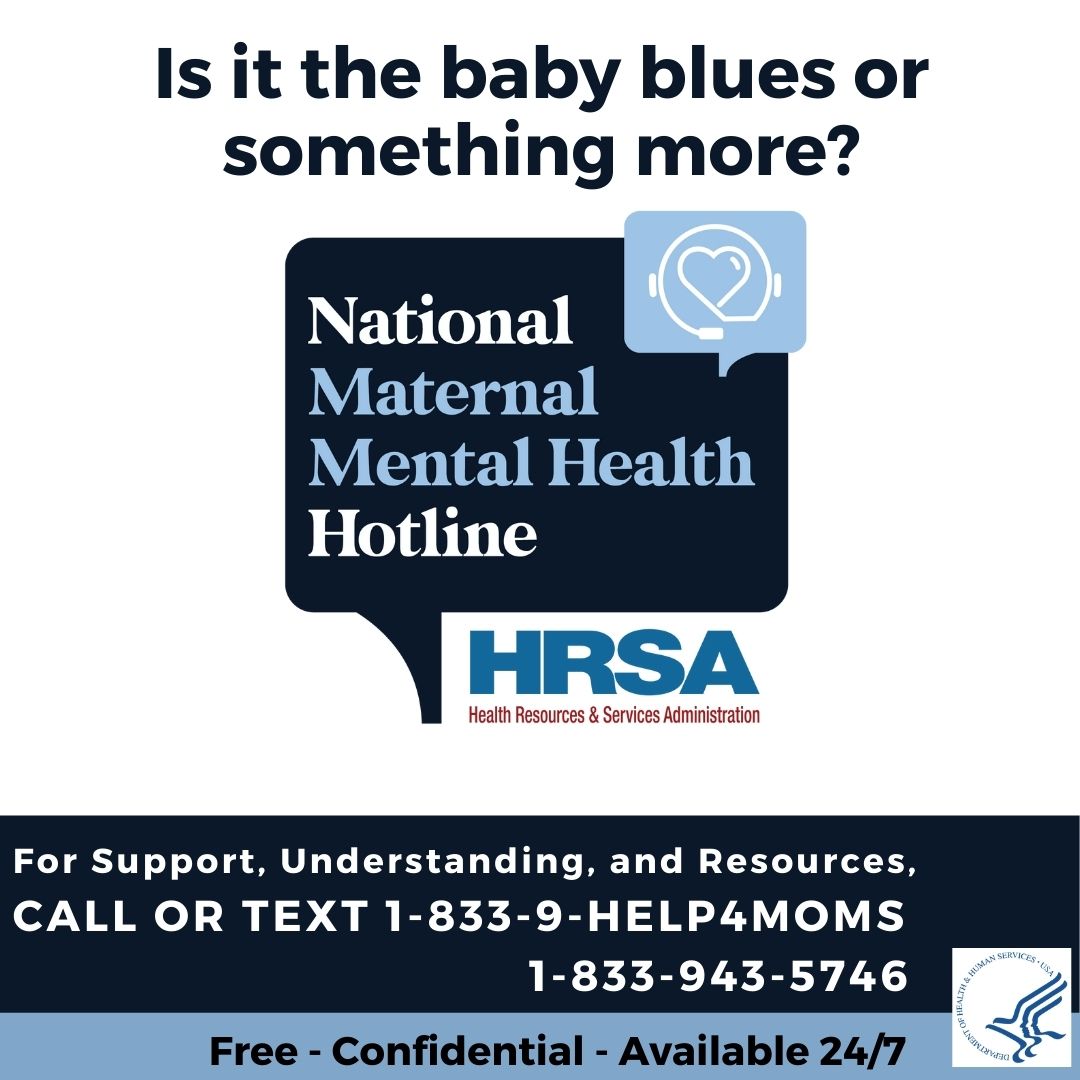Mental Health Resources
Paragraphs
Recommended Sites
These sites have expert and accurate information on mental health disorders and treatment:
The National Alliance on Mental Illness (NAMI) is an association of local and state organizations and volunteers who work in the community to raise awareness and provide family support groups and education regarding mental illness.
The Substance Abuse and Mental Health Services Administration (SAMHSA) is an agency within the U.S. Department of Health and Human Services. SAMHSA's mission is to reduce the impact of substance abuse and mental illness on America's communities.
MentalHealth.gov: Offers information about various mental health conditions, how to get help, and how to support others.
Psychology Today: Commonly used for the therapist directories, articles, and other mental health resources.
MHAMD's Healthy New Moms program continues to compile and update PMAD resources for both families and providers.
-
Resources for Providers — a list of scientific articles about PMAD prevalence, risk factors, treatment options, and more.
-
Visit Preparation Resource — designed to support conversations with a health care provider by noting issues to discuss ahead of an appointment and ensuring important information is readily available.
Office on Women's Health Postpartum Depression - Postpartum depression (PPD) is a common mental health condition that can affect anyone. While it can feel hard or lonely, healing from PPD is possible. About 1 in 8 women report symptoms of PPD in the year after giving birth. Everyone experiences PPD differently. Feeling sad, anxious, or overwhelmed are some of the signs. You might not feel connected to your baby, or you might not feel love or care for the baby. If these feelings last longer than two weeks, you may have PPD.
To learn more about PPD, including the signs and symptoms, check out this fact sheet.
Hotlines
National Suicide Prevention Hotline 1-800-784-2433 or 1-800-273-8255
Grassroots 24-hour crisis hotline at (410)-531-6677 or 1-800-422-0009
Trevor Project LGBTQ+ suicide hotline - 1-866-488-7386
Baltimore Crisis Response Hotline - 410-433-5175
National Maternal Mental Health Hotline - 1-833-9-HELP4MOMS
24/7, free, confidential support, resources, and referrals to any pregnant and postpartum mothers facing mental health challenges and their loved ones. The service is available via phone and text in English or Spanish. Call or text 1-833-9-HELP4MOMS (1-833-943-5746) to connect with counselors at the National Maternal Mental Health Hotline. Go here to learn more.
Postpartum Support International’s Perinatal Psychiatric Consult Line: available to all clinicians throughout the U.S. Call (877) 499-4773 or visit the website to schedule a 1:1 consultation by phone with a perinatal psychiatry expert.
Create a group in your phone contacts of your most helpful mental health referrals for easy access.
Maryland Resources
These sites have information about resources for Maryland families:
Maryland Addiction Consultation Service (MACS) for MOMs:
The Maryland Addiction Consultation Service for Maternal Opioid Misuse (MACS for MOMs) supports maternal health providers in addressing the needs of their pregnant and postpartum patients with substance use disorders (SUD), particularly opioid use disorder (OUD). MACS for MOMs, an expansion of the Maryland Addiction Consultation Service (MACS), is a statewide program that is free to all providers.
Funding for MACS for MOMs is provided by Maryland Department of Health. The program is administered by the University of Maryland School of Medicine. Call: 855-337-MACS (6227)
For all Seasons is a 24-hour Maryland hotline and website resources for mental health assistance, victims of sexual assault, and crisis response for individuals speaking in both English and Spanish.
Maryland Coalition of Families is a Maryland non-profit with resources dedicated to assisting families with behavioral health obstacles including children’s mental health and welfare, substance use, juvenile justice, and gambling problems as a few examples. Resource for support groups and community activities to involve family in.
Baltimore County provides a phone number for individual in Baltimore County with limited English proficiency, free of charge, on the website (410-887-3828), to assist in struggles with mental illness and information for resources and assistance through the Behavioral Health Administration.


